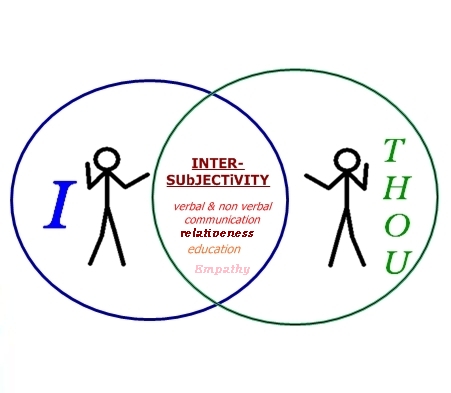But that post has led me to think about two questions--one, where did I first get my understanding of what really good feedback was supposed to look like? and two, what do I think experience-based feedback should look like?
In my first years of teaching I remember walking into the wood-paneled English office with its huge bay windows looking out onto the main campus, and, more times than not, there would be Joe, the veteran teacher chatting with a colleague while his pen flew across a piece of paper. Joe was late to secondary school teaching, but he had been a renowned college professor and seemed to embody the idea of the consummate old pro. What was most remarkable to me, however, was that he could carry on a conversation while correcting a student's essay. Not only that, the sheer volume of feedback he supplied was staggering. Perhaps fittingly, he called them "strafing runs," and the red ink certainly flowed freely on every page. To say the least I and the other young teachers were envious, and in subsequent conversations I came to learn that he had been a newspaper editor in his early days, and this was where he had learned how to perform these "runs." It had been out of necessity, the paper needed to get out, and the corrections had to be made.
But it wasn't just Joe who was engaged in this activity; we all had a mentality that we were "correcting" a set of papers. This was the way we described what we were doing. I am not sure I ever heard the words feedback or assessment in those days; you graded papers and gave tests. By definition, we were framing the issue of feedback as being defined by pointing out failures and creating competitive, comparative, hierarchical rankings. And in our own hierarchical world of teachers, Joe was our king of feedback.

The other day we had one of our monthly teacher workshop sessions where people get together and present something they have been working on or just pondering. This past Thursday's session was two English teachers presenting a literature review of the research on feedback that they had done over the summer; it was assiduously researched and beautifully delivered. Feedback has been a hot topic for researchers in the last decade or so, and there is a great deal written about it; the ASCD even devoted their last magazine issue to the topic. Formative assessment with "dollops of feedback" , as John Hattie puts it, has been shown to be one of the most highly effective measures in increasing student performance.

There is so much in these feedback studies, and yet they often address only strategic considerations. I am interested in how and why feedback becomes "transformational" for the student AND for the teacher; that would give me a clue as to how to create experience-based feedback.
The person who gave me my first hint in this quest was Austrian born, Israeli philosopher named Martin Buber. In 1923 Buber published a famous essay on human relationships called "Ich and Du." In this piece, Buber posited that here were two main choices we make in defining our existence. The first he called "I-It." When we make this choice we see everything as an object to be used. Literally, we objectify the world. Jean Paul Sartre made a similar point in his famous dictum, "never treat people like things." When we do that we create an inauthentic relationship that is only utilitarian; we are using people. (This, by the way, is why Sartre hated Manhattan which he called the "Great American Desert.")
But in an "I-Thou" choice we enter into a "living relationship." Buber (and Sartre) hoped that we would choose to do that with all people, but he thought they we could engage in this relationship with everything. "I- It" relationships are all about barriers because they are characterized by distance and engage solely in the act of examining and measuring. An "I-Thou" relationship, I realized, was characterized by dialogue and empathy where the objective was to truly understand what someone else was saying and to engage them in an act of sharing.
If I could think of feedback not as "correcting and grading" (a quintessential "I-It" relationship that evokes paralyzing feelings of judgment), but instead as a form of "creative collaboration," then the feedback that I gave would be potentially transformational both for the student and for me because we would be in dialogue. And this is where I came to see the paradox of experience-based feedback--it fosters the feeling of independence in students by putting them in relationship with others. Freedom is no longer defined as independence, but rather as inter-dependence.

Buber also taught me why I had never really thought "constructive criticism" was effective transformational feedback--it inherently creates an "I-It" relationship because it prejudices the responder with primary power rather than the author. Any kind of criticism always has to do with value; effective experience-based feedback has to do with choices made and meaning created. The value of something has to be secondary when the goal is growth and development.
Experience-based feedback has a hidden value as well, however, in that I now see feedback not as something that I am giving to students, but also something that students are giving to me. Every time I sit down to engage with a set of essays, they telling me so much about what they understand and what they don't, what misconceptions they have and ultimately, what mistakes I have made in designing the assignment. And the effect of this is to change my relationship to them as people as well; we are in this together in dialogue and they are not running for cover from a strafing run.
Coda: In one recent study students, parents, administrators and teachers were asked to name the major influences on student achievement. Ever group, except teachers, said relationships between teachers and students. Teachers cited the child's attitude, home background, school working conditions and student deficiencies. How we define the problem will give some answers, but we better be careful how we define the problem.
However, by getting our feedback to be experience-based we might have the effect of making those student-teacher relationships more what Sartre called "good faith" relationships.
Next blog post? I think I need to think through the characteristics of experience-based feedback.
hi
ReplyDelete